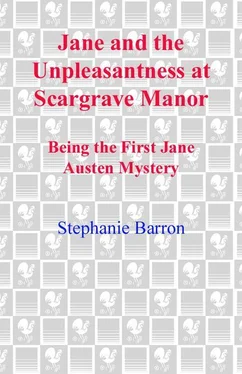Austen scholars believe that Eliza de Feuillide is the probable model for Jane Austen's most outrageous heroine, Lady Susan, of the eponymous novel. Eliza was probably the natural child of Warren Hastings (Governor-General of Bengal from the 1760s to the mid-1780s), and Jane Austen's aunt, Philadelphia Austen Hancock. Hastings stood god-father to the infant Eliza, and provided a £10,000 trust fund for her support; she later named her only son, who was to die in his youth, Hastings de Feuillide. Warren Hastings is most famous for a spectacular impeachment trial in the House of Commons from 1787–1795, where he was eventually cleared of charges of murder, bribery, and mismanagement. — Editor's note.
Wilborough House has since been torn down. — Editor's note.
Though Jane is clearly Eliza's sister-in-law, it was the custom in Austen's time to refer to one's relations by marriage as though they were of birth. — Editor's note.
Britain's roughly twenty years of war with France — from about 1795 to 1815—had a brief hiatus from 1801 to 1803, though the entire island lived in fear of Napoleonic invasion. — Editor's note.
Clergyable offenses were those that might be sentenced “with benefit of clergy,” meaning, with a dispensation against the death penalty. Manslaughter, for example, was a clergyable offense, with transportation rather than death the usual sentence. This legal provision arose from the tradition of trying ordained clergy in ecclesiastical courts, but spread to the population at large. — Editor's note.
Jane Austen fell in love with the nephew of her good friend Anne Lefroy at the age of twenty, while the young Irishman was visiting the Hampshire town of Steventon, where Jane grew up. Anne Lefroy was opposed to the match because of Jane's lack of fortune, and sent Tom away before any engagement was formed. — Editor's note.
Cashierment was equivalent to a dishonorable discharge. Since officers’ commissions were purchased at great expense, particularly in a cavalry company connected to the Royal Household, to be cashiered represented a financial loss. A retiring soldier could sell his commission to another, and profit by his professional investment; while one who was cashiered was dismissed without compensation, and could not sell his position in turn. — Editor's note.
Postage was actually an expensive item in the nineteenth century, as letters were billed according to how many miles they traveled. No envelopes were used — the sheet of paper was folded and sealed with wax — and a letter comprised of two sheets of paper was billed double. Most important, the recipient paid the postage, not the sender; and so Lord Scargrave's meticulous accounts may be taken as evidence of his scrupulousness in keeping track of his debts. — Editor's note.
Separate estate, or separate property, was a term in the marriage settlement drawn up at a woman's engagement, particularly if she was an heiress. This set certain property — investments or land — in trust, with the income available to the woman, but the property itself beyond the reach of herself, her husband, or his creditors. Such property customarily passed to her female children at her death. — Editor's note.
Interestingly, Austen's dislike of this phrase resurfaces in her novel Sense and Sensibility , in which Marianne Dashwood uses almost identical language to upbraid Sir John Middleton, when he jests that she has “set her cap” at Willoughby. — Editor's note.
Henry Austen refers here to the London Stock Exchange, founded in Change Alley in 1698. Before the mid-nineteenth-century dismantling of restrictive legislation on joint-stock companies (the result of the South Sea Bubble crisis and its resultant 1720 Act forbidding the formation of companies except by royal charter, or Act of Parliament), the Exchange was concerned primarily with public funds: government stock, East India bonds, canal-company shares, and later utilities and dock-company stocks. — Editor's note.
This was a corps of fishermen and coastal villagers equipped with boats — a sort of seaside militia — placed on alert in the event of invasion. — Editor's note.












